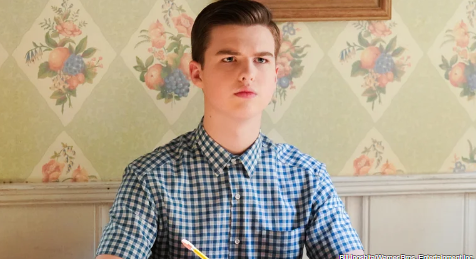
The popular sitcom “Young Sheldon” ran for seven seasons, from 2017 to 2024. It chronicles the young life of the titular genius, played by Iain Armitage, from the age of nine until just after his fourteenth birthday. Sheldon achieves a lot in that time, starting high school before his tenth birthday, graduating in a mere two years, and spending the rest of his pre-teen years at college before heading off to Caltech in the series finale. Although there are bumps along the way, it’s the perfect trajectory for a child genius, which is why fans have been left wondering if there’s more truth to the character than meets the eye. Is “Young Sheldon” based on a true story?
Discussing why this might be the case on Reddit, one fan, r/happycamper2345, theorized that “Sheldon is partially based on Oppenheimer after reading American Prometheus. There are plenty of similarities between them. Sheldon looks like a younger version of him, and even some mannerisms are similar.” Other fans also believe the character of Sheldon is based on the SpaceX founder, Elon Musk. However, this is not true. “Young Sheldon” actually debunks the theory when Musk makes a cameo in Season 1. He appears in Episode 6, and the scene actually pokes fun at the theory by suggesting Musk stole the idea to land rockets vertically after finding Sheldon’s notebook.
“Young Sheldon” is definitely not based on a true story. The only events it is based on come from the fictionalized CBS sitcom “The Big Bang Theory.” That show, which ran for 12 seasons from 2007 to 2019, establishes the character of Sheldon Cooper as played by Jim Parsons. “Young Sheldon” serves as a prequel to this, offering a comedic and exaggerated perspective of his formative years, focusing on his childhood and adolescence in Texas.
Chuck Lorre and Bill Prady created the character of Sheldon Cooper for The Big Bang Theory
Chuck Lorre and Bill Prady have a very impressive track record in TV. After working together on the sitcom “Two and a Half Men,” which Lorre created and Prady wrote for, the duo began looking for another project they could do together and started brainstorming ideas. This led to them creating “The Big Bang Theory,” an entirely fictional show.However, they did draw on some of their own life experiences for the show. Prady had worked as a computer programmer in the 1980s, and Lorre was really interested in his stories about the people he worked with at the time. But they wanted to move away from tech, and after reading a book by Richard Feynman, they agreed that their characters should be scientists. “And we were also working on an idea about a young woman who’s going off to the big city … to start her life, and there was a moment in the room where we were like, ‘What if they met her?'” Lorre added while speaking on a panel at The Paley Center for Media.
Talking about the first meeting between Penny (Kaley Cuoco), Leonard (Johnny Galecki), and Sheldon in the pilot where they awkwardly say “hello” to each other too many times, Lorre admitted, “We weren’t quite sure where we were going with Sheldon at that point.” However, he and Prady soon found the right direction for the character, delivering plenty of iconic Sheldon scenes along with creating his memorable catchphrase, “Bazinga!” The depictions of Sheldon’s life continued in “Young Sheldon,” too, with the prequel series’ finale revealing that Sheldon and his wife, Amy (Mayim Bialik), are enjoying a happy life together after “The Big Bang Theory.”
